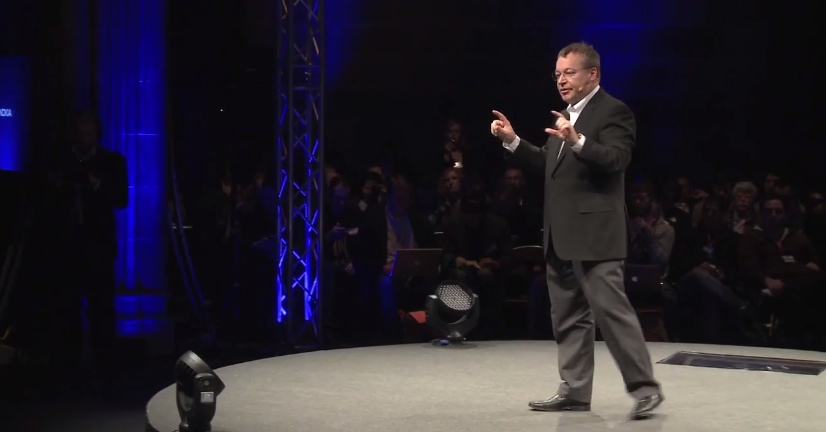
Elop on stage in a follow-on evening event at MWC 2011, explaining in more detail some of Nokia's strategy and answering some of the criticisms of the original keynote statements...
Understandably, a lot of the 'what if?' discussion will revolve around a single date in history, the (infamous?) February 2011 public turnaround of Nokia's Stephen Elop on stage with Microsoft's Steve Ballmer, announcing Windows Phone as the way forward with Meego being cancelled and Symbian being wound down. The other date/news/link you perhaps need is the sale of Nokia's Devices division to Microsoft a couple of years later.
Right, on with the questions. And if you want to have your say, please see below. Also, please note that all opinions below are mine (Steve's) and don't necessarily reflect the views of other current or past contributors to AAS and AAWP.
________________________
What if Nokia had kept on with Symbian and Meego in 2011?
At the start of 2011, Nokia was on something of a roll, actually. The new Symbian^3 range of handsets, the N8, C7, E7 and C6-01 were all selling quite well, having been out for a few months. These were the first Symbian phones (from Nokia) with capacitive touchscreens and the user experience was a lot closer to what buyers were expecting after three or so years of Apple iPhone and then Android handsets. Could Nokia have succeeded by sticking with Symbian for the midrange and using its new next-gen Meego OS for top end devices?
Possibly. There were problems though, which even the most ardent Symbian and Meego fans will acknowledge.
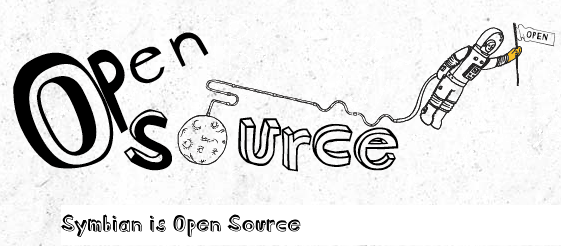
One of the graphics from days of Symbian's ill-fated move to open source - and then back again, wasting time and man power...
Firstly, Symbian's codebase, massively overhauled from the original non-touch S60 devices over the years and massively delayed by the whole 'take Symbian open source' fiasco, was a right mess. The OS itself was designed back in the days of GPRS and dial-up modems and almost everything had to be retrofitted over the next decade. The iPhone (and iOS) had been improving rapidly from its 'smartest feature phone' opening in 2007, and the hardware and components used in the iPhone and Android worlds were starting to get close to Nokia's prowess.
Competition was fierce and Symbian's legacy architecture was holding it back (plus the above mentioned delays). 2011 was the point, arguably, where Android and iOS started to match Symbian from a technical (OS) point of view. Yes, Symbian development could be continued, but there had already been so many false starts and unproductive blind alleys (Symbian Carla and Donna, anyone?) that the competition was sure to overtake in fairly short order.
Secondly, Nokia's Symbian development teams had become too large (thousands), too complex and fragmented - matching the OS itself, in a way. A fresh start was surely needed. Which brings me to...
Thirdly, Meego, a joint project with Intel, was progressing as a modern cloud-centric, swipe-driven, graphical OS, but was too immature to take on iOS and Android. Having used the Nokia N9 at length, I'd say that it was at least a year behind where it needed to be. [Of course, Windows Phone was no further along, but that had the integral backing of the mighty Microsoft rather than Meego's part time patronage from an ailing Nokia.]
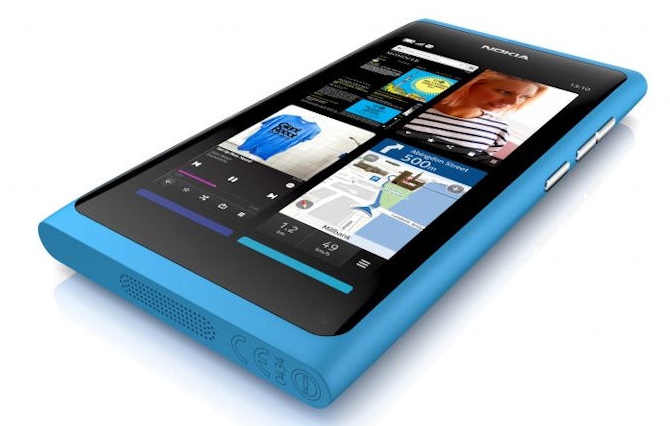
The radically styled Nokia N9 running Meego - the hardware got re-used for the Lumia 800, the swipe-based interface has been copied time and again by the likes of Blackberry OS 10, Jolla and even sometimes Android.... The N9 was somewhat stillborn and never really promoted. It needed to have been faster and higher resolution and more mature.
Cancelling Meego seemed harsh to fans of the OS, but it was too little, too late in the wider context. Nokia's mistake was not to wind Symbian up - that this had to happen at some point was obvious to all - but in announcing it so dramatically to the world before a successor was ready.
I've said many times privately that if I'd been a writer on Nokia's PR staff back in February 2011, I could have saved the company billions in stock value. All Elop had to say, on stage to the world, was "Windows Phone is the future, with Microsoft, but we're continuing with our new Symbian handsets until Windows Phone is ready".
As it is, there was a massive fall in sales of the fledgling Symbian^3 handsets through 2011, as networks understandably lost confidence in Nokia's commitment to the Symbian^3 handsets and stopped ordering, recommending and selling them. And a corresponding abandonment of Symbian as a viable platform/ecosystem, by developers and service providers, resulting in a situation by 2013 where compatibility with popular Internet-hosted services was already starting to drop away. Yes, we had Symbian Anna and Symbian Belle, but these were little more than UI polish at the end of the day.
Rafe's often said that Elop had to make the point about the switch dramatically and forcibly, in order to convince Microsoft that Nokia was serious about the new platform, but I'm not convinced. Elop was ex-Microsoft and had tight ties into his old company - there was no need to play public politics when his old friend Steve Ballmer was only a handshake away, on stage with him.
In short though, if Nokia had kept on with Symbian and Meego in 2011, it would ultimately have been doomed. The end of Symbian and Meego would have taken place later (maybe up to a couple of years at most), but the end was in sight. It's just the way it all panned out that rankles, both for Symbian/Meego fans and for (as it turned out, in the end) Nokia employees.
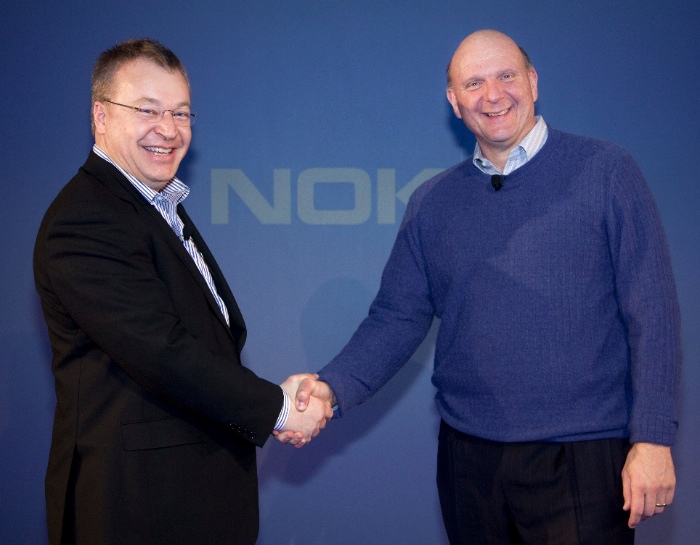
Was Stephen Elop a 'trojan horse' from Microsoft?
Ah yes, talking of Elop, above.... In a sense, of course he was (a trojan horse). Not explicitly, of course, but when Nokia's board hired Elop they knew full well that he was bringing close ties to Microsoft management with him, and the promise of hooking into Microsoft's fledgling new smartphone OS, backed by enormous financial reserves. Elop himself would always have had, in the back of his mind, the knowledge that exciting things were happening back in Redmond, and that if he didn't think Nokia's OSes were cutting it then he might be able to engineer a change. So, when Elop bounded up on stage at the end of Nokia World 2010, I was apprehensive, to say the least, speaking as a writer and editor for a Symbian-centric web site - what on earth was about to happen?
As it turned out, leaving aside the large and arguably unnecessary sales shortfall mentioned above, the change to Windows Phone went relatively quickly and smoothly, the production of the Lumia 800 just over six months later was impressive - even if the hardware did borrow hugely from the Meego-powered Nokia N9.
Has Windows Phone been a sales disaster all round?
Not really, I'd argue that it's a newer OS (2010) than iOS (2007) and Android (2008) and hasn't yet reached the peak of its potential (though with the availability of Windows Phone 8.1 and Lumia Cyan it just got a lot closer - we're now approaching the 'put up or shut up' phase for the OS). Moreover the smartphone market has been growing massively, largely on the strength of cheap Android handsets, the vast majority of which have little merit as works of engineering. Despite past examples like VHS vs Betamax video, quality should win out in the end, which is partly why Apple's iPhone sales have remained relatively stable despite the cheap Android onslaught.
Windows Phones have been selling at just less than 10 million per quarter, worldwide, but I fully expect this figure to be 15 million in Q3 and more in Q4, 2014. I know I'm biased, writing for AAWP, but in terms of numbers, the best of Windows Phone is still to come.
Would Microsoft have made such good progress with Windows Phone without Nokia's input?
No. Microsoft is large and slow - this has always been its way in other areas. Witness the slow growth and stagnation of Windows Mobile pre-2007. Windows Phone was a complete rewrite and had promise, but it took Nokia's hardware engineering prowess to create products based on Microsoft's OS that people actually wanted to buy. Through design, build quality, top components (screens, cameras, speakers).
In addition, Nokia's engineers (all used to what Symbian and Meego were capable of) had been pushing Microsoft very hard to try and get the rudiments of Windows Phone up to the level where they could say, hand on heart, that the new Lumias were an improvement on what had gone before. I firmly believe that Nokia's involvement with Windows Phone accelerated the OS to the point where it's now seen as 'a little late but catching up', as opposed to 'so late to the the smartphone party that it's irrelevant'. Niceties like Nokia Glance screen, all the imaging innovations and processing (seen in the existence of the Lumia 1020 below and its PureView successors), the HERE sat-nav suite, plus a lot more under the hood, have meant that Windows Phone is at least on the same lap as its competitors and, arguably, about to start catching up, in terms of sales and general ecosystem.
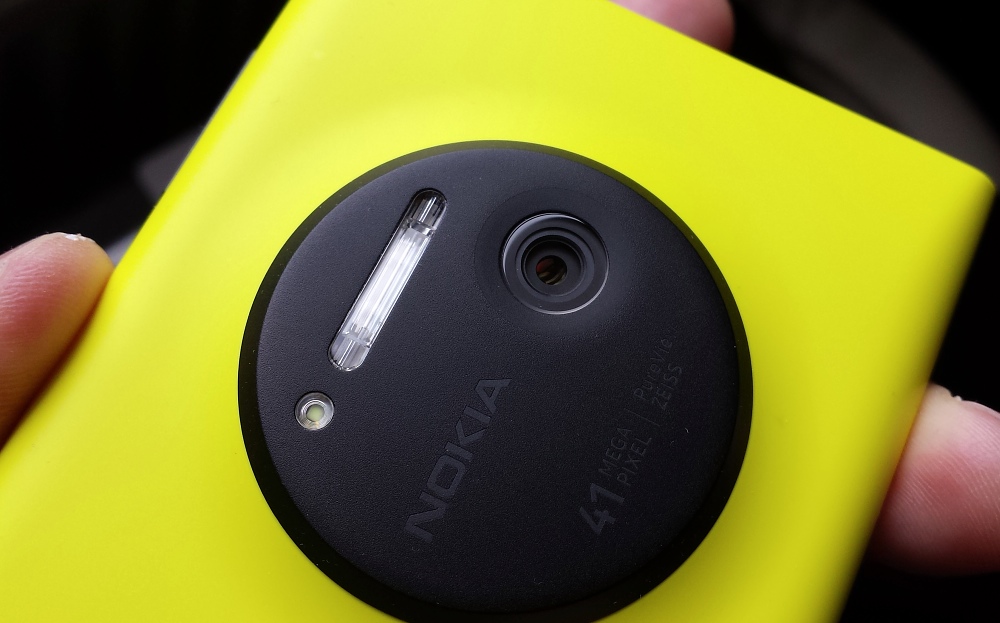
What if Nokia had adopted Android as the way forward in 2011?
This question has been debated a lot over the last few years - somewhat fruitlessly, but it's still worth a mention here. On the positive side, it would have been quicker to develop Android handsets, since the OS was more mature, Android would have appealed more to Symbian users since there are a lot of similarities in terms of flexibility and multitasking, and - of course - Android was something of a sure success story. It's always good to back a winning horse.
On the negative side, Nokia was worried about Samsung and Chinese manufacturers swooping in to steal its lunch in the low and mid-range*. Would Nokia have stood out? I'm sure sales in the short term (2011-2015) would have been better, but as a decade-long strategy it seemed flawed. Elop's leaning was naturally towards his alma mater and the idea was that Windows Phone could be a long term (2015-2020) success story, tied into (the then upcoming) Windows 8 and Windows 9, into tablet ambitions and Xbox in the living room. Microsoft, it seemed, had the vision, the money to back it up, and Elop had all the right contacts to make the transition - and, eventually - the sale work.
* We're only now just starting to see cheap Far East Windows Phones appear, by the way...
_______________________
The above notwithstanding, I do have a number of personal sadnesses - I'd have loved to have seen Nokia pour another year's worth of OS development behind Symbian to produce an 808 successor, with larger (4.5") and higher resolution qHD screen. I'd have loved to have seen what high end Nokia hardware running Android 4.x would look like. I'd have loved to have seen where Meego could have gone (again, larger screen, more horsepower).
Then there are the sadnesses of the Nokia layoffs and the sale of (most of) a once proud Finnish company. We're in a new era though, where everything happens at breakneck speed, yesterday's tech is old hat and sales of smartphones are measured in the billions. It's OK to look back and analyse (as here) with hindsight, but it's also time to look ahead - and as far as possible.
Watch this space.
